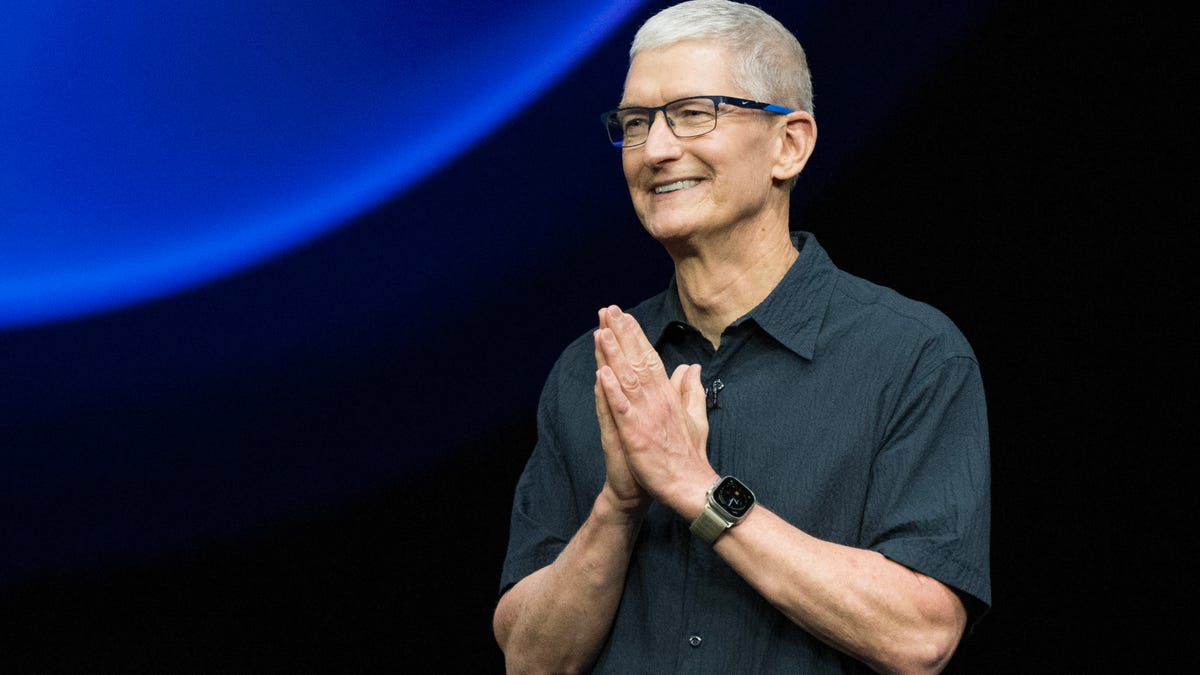
Getty Images
With thematic ETFs, investors can take part in the growing global AI industry without the need to pick individual stocks.
The race in artificial intelligence, or AI, continues to heat up in the opening days of 2024. Major players in the tech industry are consistently unveiling new initiatives, signaling a robust and evolving market.
A prime example of this trend is Microsoft Corp. (ticker: MSFT), which in early January announced a significant innovation in its hardware: the introduction of an AI key on new keyboards. This feature will now allow users to easily access an AI tool called Copilot for assistance.
“We expect the AI market to reach over half a trillion dollars in value by 2024 even amid a slowdown in venture capital funding, as organizations across various sectors adopt AI to enhance efficiency, cut costs and enhance customer experiences,” says Tejas Dessai, assistant vice president and research analyst at Global X ETFs.
Earlier in 2023, Microsoft also integrated AI into other flagship products, including Microsoft 365 and the Bing search engine, reflecting a broad commitment to embedding AI across its software suite. This followed a $13 billion investment in ChatGPT-maker OpenAI, which also powers Copilot.
“Looking ahead to 2024, we believe the AI trend will broaden in scope to encompass additional segments of the market, with new technological advancements, a more stable interest rate environment and the ongoing impact of fiscal stimulus broadening innovation across multiple industries,” says Rene Reyna, head of thematic and specialty product strategy at Invesco.
However, the rapid growth of the AI industry hasn’t gone unnoticed by regulators. In December 2023, the U.S. Federal Trade Commission began investigating Microsoft’s stake in OpenAI to assess potential antitrust violations. This scrutiny highlights the complex and rapidly evolving nature of the AI industry, which creates uncertainty for prospective investors.
“We also see some risk as AI regulation takes shape, which could momentarily throw the market off course,” Dessai says. “For those reasons, we recommend investors zoom out and take a more comprehensive, passive approach when getting exposure to the space.”
Given these uncertainties and the fast pace of technological developments, investors might find it challenging to pinpoint specific winners in the AI space ahead of time.
Instead, a more prudent approach could be to focus on the overall growth prospects of the sector. This is where AI-themed exchange-traded funds, or ETFs, come into play.
Thematic ETFs offer investors an opportunity to participate in the growth of the global AI industry without the need to pick individual stocks. These funds provide exposure to a diversified, rules-based basket of AI-related stocks, all under a single ticker.
“We’re in the early stages of the AI cycle, and proper diversification is extremely important – be it across company stages or geographies – because it’s difficult to pick a winner or two this early,” Dessai says. “With a thematic ETF, you’re following an idea as opposed to a complex strategy.”
Here are six of the best AI ETFs to buy in 2024:
| AI ETF | Expense Ratio |
| Invesco AI and Next Gen Software ETF (IGPT) | 0.61% |
| Global X Artificial Intelligence & Technology ETF (AIQ) | 0.68% |
| Global X Robotics & Artificial Intelligence ETF (BOTZ) | 0.69% |
| Roundhill Generative AI & Technology ETF (CHAT) | 0.75% |
| First Trust Nasdaq Artificial Intelligence and Robotics ETF (ROBT) | 0.65% |
| iShares Robotics and Artificial Intelligence Multisector ETF (IRBO) | 0.47% |
Invesco AI and Next Gen Software ETF (IGPT)
“It’s becoming apparent that AI and robotics are no longer just for tech giants,” Reyna says. “In 2024, we expect to see more user-friendly AI tools and platforms, as well as increased use of robotic process automation.” By buying an AI thematic ETF like IGPT, investors can gain broad exposure to both the technology titans and the up-and-coming AI innovators and users.
IGPT tracks the STOXX World AC NexGen Software Development Index. “The index targets 100 companies from across the globe that generate revenue from various forms of software and artificial intelligence such as data storage, robotics, autonomous vehicles, semiconductors and web platforms,” Reyna says. The ETF charges a 0.61% expense ratio.
Global X Artificial Intelligence & Technology ETF (AIQ)
“AIQ offers a broad and comprehensive exposure to the entire AI value chain, with exposure that ends up looking quite like the Nasdaq-100 index but is more tilted toward technology and mid-cap growth,” Dessai says. Its benchmark, the Artificial Intelligence & Big Data Index, has notable tech stocks like Intel Corp. (INTC), Qualcomm Inc. (QCOM) and Nvidia Corp. (NVDA) in its top holdings.
That being said, AIQ doesn’t just hold chipmakers. Communication sector stocks with AI involvement like Meta Platforms Inc. (META) and Alphabet Inc. (GOOGL) are also featured, along with consumer discretionary stocks like Amazon.com Inc. (AMZN), which plays an important role in the AI support ecosystem with its cloud computing arm Amazon Web Services, or AWS. AIQ charges a 0.68% expense ratio.
Global X Robotics & Artificial Intelligence ETF (BOTZ)
“We see BOTZ as a more niche play on applied automation,” Dessai says. “In addition to the momentum of AI, the theme also benefits from industrial investments supporting broad re-shoring of manufacturing across the United States.” In contrast with AIQ, BOTZ has more of a focus on downstream industries and companies directly benefitting from AI integration and deployment in their operations and services.
BOTZ’s benchmark, the Global Robotics & Artificial Intelligence Thematic Index, features a far lower allocation to technology stocks (48%) compared to AIQ (65%). In contrast, the ETF has a higher allocation to industrials at 35% of its holdings, where AIQ has just a 9% weighting to that sector. This ETF may be ideal for investors looking to profit from the practical application of AI tools. BOTZ charges a 0.69% expense ratio.
Roundhill Generative AI & Technology ETF (CHAT)
The type of AI most investors may be familiar with is generative AI, which includes OpenAI’s ChatGPT. This type of AI specializes in producing human-like text responses to queries using machine learning and can easily be customized to a user’s particular needs thanks to its application programming interface, or API. This feature has significantly boosted ChatGPT’s popularity and versatility.
To focus on the companies that have the most direct involvement and stake in generative AI, investors can buy CHAT. This ETF is actively managed, meaning that its portfolio managers pick stocks based on their proprietary research and not via an index. It’s fairly concentrated across 37 holdings, with Microsoft, Nvidia and Alphabet sitting in the top three spots. CHAT charges a 0.75% expense ratio.
First Trust Nasdaq Artificial Intelligence and Robotics ETF (ROBT)
First Trust is an ETF provider known for its ETFs that utilize more stringent index rule sets. In the case of ROBT, this involves the Nasdaq CTA Artificial Intelligence and Robotics Index, which screens and categorizes eligible stocks as either AI enablers, engagers or enhancers. These categories correspond to the degree and nature of a company’s AI involvement.
Engagers, which are companies that directly design, integrate or deliver AI products and services, receive the highest weighting in the ETF at 60%. Enablers and engagers, which are companies that develop AI components or provide value added services, receive 25% and 15% weights, respectively. Within each category, selected stocks are equally weighted. The ETF charges a 0.65% expense ratio.
iShares Robotics and Artificial Intelligence Multisector ETF (IRBO)
The specialized and often more complex construction of thematic ETFs can lead to higher expense ratios than what investors are used to. For those seeking low fees when it comes to investing in AI ETFs, IRBO may be ideal. This ETF tracks 111 stocks as represented by the NYSE FactSet Global Robotics and Artificial Intelligence Index, and comes in at a 0.47% expense ratio, the lowest on this list.
What’s unusual about IRBO is its equal-weighted methodology. Whereas most of the previous ETFs have higher concentrations in certain mega-cap AI-themed stocks, IRBO has a far higher distribution of mid- and small-cap stocks. This includes names like Microstrategy Inc. (MSTR), Sirius XM Holdings Inc. (SIRI) and Lumen Technologies Inc. (LUMN), which could grow to become the industry’s next-generation leaders.
Updated on Jan. 9, 2024: This story was published at an earlier date and has been updated with new information.















